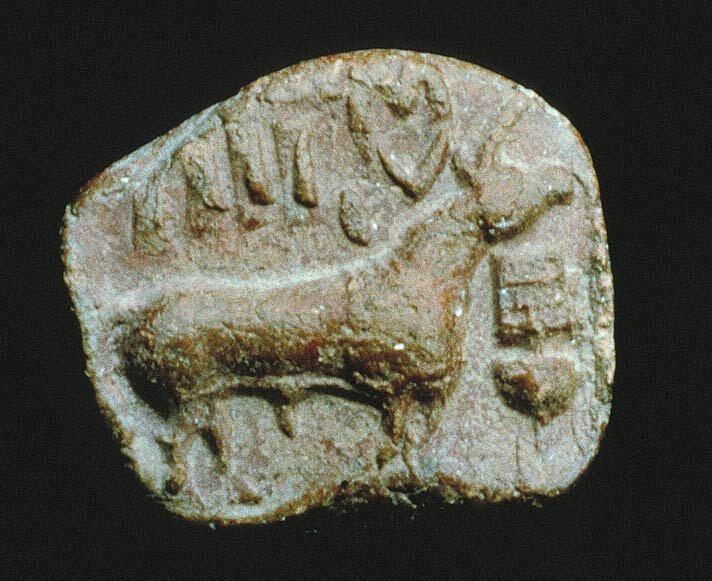January 26th, 2021
"Sealing or token with impression made from a unicorn seal with script. The back is smooth and rounded, suggesting that this object was a certificate or pass representing the seal owner and not something attached to a bundle of goods. Three script signs appear above a unicorn which stands facing right, with a ritual object or offering placed under a head" writes archaeologist Mark Kenoyer about this object found at Mohenjo-daro.
He also writes that "impressions of seals on clay tags and on circular tokens show how the rulers and traders actually used their seals and provide insight into commercial procedures and the control of trade. Circular tokens with the impressions from square stamp seals on one of both sides were never attached to bundles of goods. In historical times such tokens bearing an official seal were used as passes to control traffic – much like a hauling permit in the modern context – in much the same way the Indus tokens may have been issued to middlemen or transporters as certificates from a seal owner" (Ancient Cities of the Indus Civilization, pp. 88, 189).

